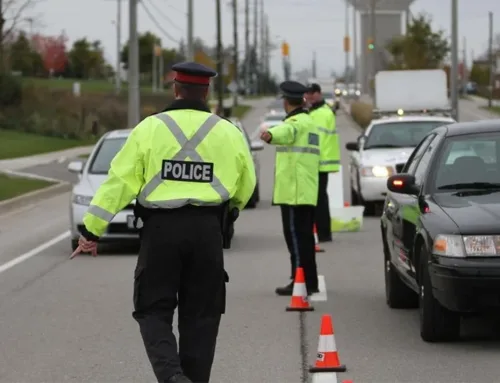Ontario’s roadways bear witness to countless journeys each day. But with every journey comes the responsibility of safe travel. Tragically, some journeys end in fatal collisions, shaking the very fabric of communities and families. It is within this framework that we delve into the nuances of fatal collisions in Ontario, understanding their causes and consequences, and recognizing the significance of professional services like Traffic Paralegal Services in aiding individuals amidst legal ramifications.
The Alarming Statistics
In Ontario, fatal collisions have been a pressing concern. In a report published by Ontario’s Ministry of Transportation, fatal road traffic accidents have a consistent and sombre presence in the province’s annual data. The term “fatal collision meaning” refers to any road traffic accident that results in the death of at least one person. Among these, fatal head-on collisions and high-speed car crashes tend to be the most catastrophic.
The Emotional and Psychological Toll of Fatal Collisions
Beyond the legal and financial consequences, collisions with a fatality have a significant emotional and psychological impact on all involved, including witnesses and first responders. Fatal road traffic accidents often lead to long-lasting trauma, manifesting as anxiety, depression, or post-traumatic stress. This concealed aftermath emphasizes the importance of mental health support for everyone touched by such tragic events, underscoring the need for a holistic approach to road safety.
Causes of Collisions with Fatalities
While every collision is unique, several recurring factors contribute to fatal road traffic accidents, including impaired driving, speeding, and distracted driving. Each of these causes demonstrates the need for increased awareness and adherence to safety regulations to prevent collisions with a fatality.
Impaired Driving
Recent data suggests that a considerable portion of fatal collisions in Ontario can be traced back to impaired driving. Alcohol, when consumed, affects the central nervous system, impairing judgment, coordination, and reaction time. The grave consequences of this impairment become starkly evident on the road.
Speeding
The thrill of driving on an open road often tempts drivers to exceed speed limits. However, speeding significantly reduces reaction time and increases the risk of severe accidents, such as fatal head-on collisions. High speeds can result in devastating outcomes, making it crucial to adhere to posted limits.
Distracted Driving
Modern technology, especially smartphones, has become a leading cause of distracted driving. Activities like texting or using apps while driving take attention away from the road, causing potentially fatal accidents. Even a brief moment of distraction can result in serious consequences.
Reckless Driving
Beyond speeding, behaviours like tailgating, not yielding the right of way, and aggressive overtaking contribute to hazardous situations, escalating the risk of fatal outcomes.
Poor Weather Conditions
Ontario’s winters are notorious for their severity. Snow-covered roads, black ice patches, and reduced visibility due to fog or heavy rainfall can make driving treacherous if precautions aren’t taken.
Lack of Seatbelt Use
A simple click can make the difference between life and death. Despite widespread campaigns, some still neglect this crucial safety measure.
Vulnerable Road Users
Without the protective shell of a vehicle, pedestrians, cyclists, and motorcyclists face heightened risks, making them particularly vulnerable.
Solutions and Preventative Measures
Prevention is the cornerstone of road safety. This encompasses enhanced driver education, regular vehicle maintenance, public awareness campaigns, and stringent enforcement of traffic laws. Understanding the fatal collision meaning is vital in shaping preventative strategies. By recognizing that a fatal collision refers to any road accident resulting in at least one death, it emphasizes the importance of proactive measures to save lives and reduce such tragic incidents.
What penalties do I face for a fatal road traffic accident?
In Ontario, being involved in a fatal traffic accident can result in grave legal consequences. The penalties are based on the circumstances surrounding the accident, the degree of negligence or recklessness demonstrated, and potential violations of the Highway Traffic Act. Here’s a comprehensive breakdown:
- Careless Driving Causing Death: If a driver is deemed to have been driving without due care and attention or without reasonable consideration for others, and this results in a fatality, they can be charged with careless driving causing death. This offence can lead to a fine ranging from $2,000 to $50,000, imprisonment for a term of not more than 2 years, or both. Additionally, the driver’s license may be suspended for up to five years.
- Failing to Remain at the Scene: Leaving the scene of an accident, especially one involving a fatality, is a serious offence. If convicted, a driver can face up to 6 months imprisonment when the accident results in death and the driver left the scene to escape civil or criminal liability.
- Demerit Points and License Suspension: Apart from the immediate penalties, drivers may also accrue demerit points on their driving record, which can lead to license suspensions. In the case of serious offences, such as those resulting in fatalities, the license suspension can be immediate and lengthy.
- Insurance Implications: Being found at fault in a fatal accident can also lead to a significant increase in insurance premiums or even the cancellation of the insurance policy.
- Civil Liability: Apart from the criminal penalties, individuals involved in fatal accidents may also face civil lawsuits from the victim’s family. This can lead to substantial financial penalties.
It is essential for anyone facing such charges or implications to seek legal counsel. Firms like Traffic Paralegal Services, with their in-depth knowledge of Ontario’s traffic laws and regulations, can offer invaluable assistance in navigating the complex legal landscape surrounding fatal traffic accidents.
How long does a car accident stay on record in Ontario?
Accidents in Ontario, regardless of their severity, are usually reflected on one’s driving record for six years. However, certain ones can linger longer, impacting various facets of a driver’s life, including insurance premiums.
Is it possible to fight a fatal accident charge?
Yes, it is possible to contest a fatal accident charge in Ontario. Each case is unique, and the outcome depends on the evidence presented, the circumstances surrounding the accident, and the legal strategies employed. While the process can be intricate and emotionally taxing, especially given the serious nature of the charge, there are several avenues and defences that can be explored:
- Insufficient Evidence: The prosecution bears the burden of proving the charge beyond a reasonable doubt. If they cannot provide sufficient evidence linking the accused to the alleged negligence or recklessness that caused the accident, this could be grounds for dismissal.
- Challenge the Methodology: Evidence such as blood alcohol content, speed estimates, or witness statements can sometimes be challenged based on the methodology used to obtain or interpret them.
- Alibi or Misidentification: If the accused can prove they were not at the scene of the accident or that there’s a credible case of mistaken identity, this could form a strong defence.
- Emergency Situation: If the driver can demonstrate that their actions were a response to an unexpected emergency – one that they did not create – and that they acted in a manner that any reasonable person would under those circumstances, this could be a viable defence.
- Involuntary Intoxication: While rare, if the accused can prove that they were unknowingly drugged or consumed alcohol without their knowledge or consent, this might be used as a defence.
- Mechanical Failure: Demonstrating that the accident was a result of unforeseen mechanical failure, and not due to any negligence or fault of the driver, can be a potential defence.
- Violation of Charter Rights: If the accused’s rights under the Canadian Charter of Rights and Freedoms were violated during the investigation or legal process – for instance, if there was an unlawful search and seizure or if the accused was not provided access to counsel promptly – this could form the basis for challenging the evidence or even the entire charge.
- Negotiations and Plea Bargains: In some cases, based on the evidence’s strengths or weaknesses, the defence and prosecution might negotiate a plea to a lesser charge or recommend a more lenient sentence.
It is paramount to consult and retain legal representation when faced with such a grave charge. Navigating the legal intricacies requires expertise. Firms like Traffic Paralegal Services can provide the necessary guidance, support, and representation to those looking to challenge a fatal accident charge in Ontario.









Leave A Comment
You must be logged in to post a comment.